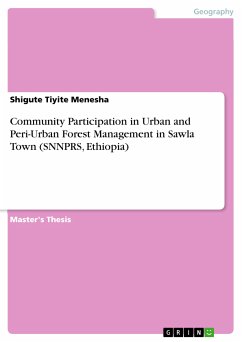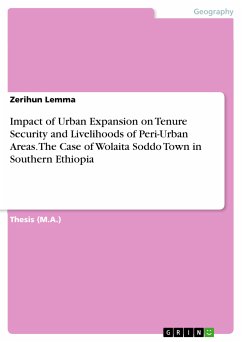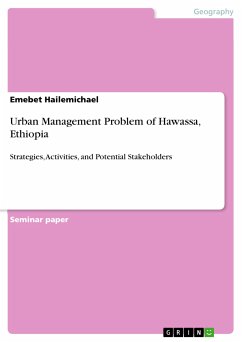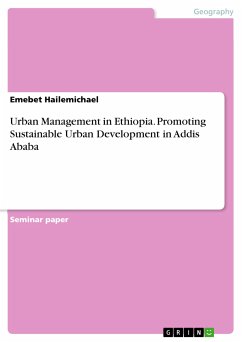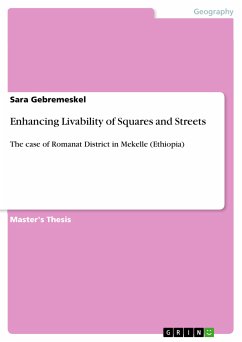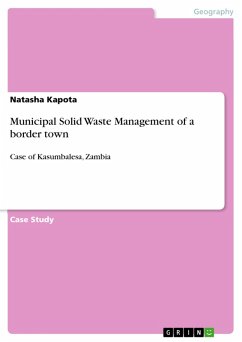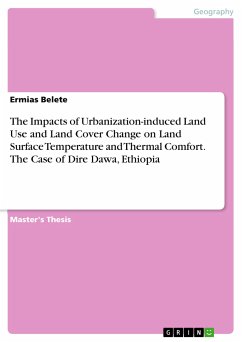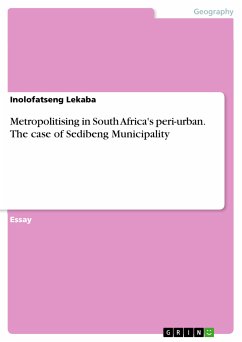Master's Thesis from the year 2010 in the subject Urban and Regional Planning, grade: Very Good, Ethiopian Civil Service University (Urban Development and Management), course: Urban Management, language: English, abstract: This research explored the community participation in urban and peri-urban forest management (UPFM) in Sawla town of SNNPR State. The research design employed was descriptive method. The urban and peri-urban forests in Sawla are overwhelmed by pressures inherent to the extraordinary form of urban development such as rapid increase of urban population, poverty, land tenure insecurity, weak of institutional responses, lack of proper environmental planning and implementation and management restrictions. The potential opportunities related to developing, managing and conserving the existing urban and peri-urban forest such as in farmland, homestead, streetsides, buildings, park lots, boulevards, hotels, central business centers, religious houses and graveyards, monument, cemeteries, riversides and streamlines, riparian areas, open spaces and peri-urban lands and public institutions. The local community preference to pay money, extend labor and direct involvement and forms of participation such as peasant forestry, functional group forestry, fundamental group forestry, village forestry and public forestry are most important tools to rejuvenate UPFM. There are obstacles such as the living standards people, land tenure insecurity, level of awareness of local community, weak institutional arrangement and laws enforcement that made local people unwilling to participate in UPFM.
Dieser Download kann aus rechtlichen Gründen nur mit Rechnungsadresse in A, B, BG, CY, CZ, D, DK, EW, E, FIN, F, GR, HR, H, IRL, I, LT, L, LR, M, NL, PL, P, R, S, SLO, SK ausgeliefert werden.

